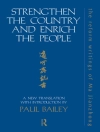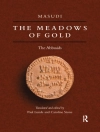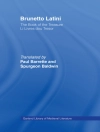Bushido: The Soul of Japan is a book written by Inazō Nitobe exploring the way of the samurai. He found in Bushido, the Way of the Warrior, the sources of the seven virtues most admired by his people: rectitude, courage, benevolence, politeness, sincerity, honor and loyalty. It was published in 1899.
A best-seller in its day, it was read by many influential foreigners, among them President Theodore Roosevelt, President John F. Kennedy and Robert Baden-Powell, the founder of the Boy Scouts.
Nitobe also delved into the other indigenous traditions of Japan, such as Buddhism, Shintoism, Confucianism and the moral guidelines handed down over hundreds of years by Japan's samurai and sages. He sought similarities and contrasts by citing the shapers of European and American thought and civilization going back to the Romans, the Greeks and Biblical times. He found a close resemblance between the samurai ethos of what he called Bushido and the spirit of medieval chivalry and the ethos of ancient Greece, as observed in books such as the Iliad of Homer.
Про автора
Nitobe Inazō (1862 – 1933) was a Japanese author, educator, agricultural economist, diplomat, politician, and Protestant Christian during the late Meiji era.












